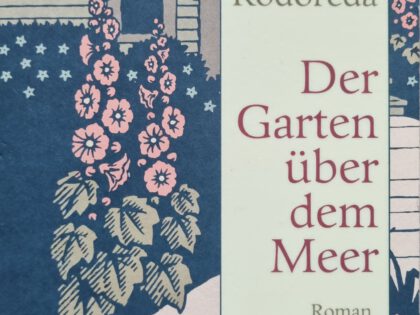Robert verlässt kurz nach Kriegsende seinen Heimatort, kaum dass er die Schule beendet hat, und kehrt seinem Leben – im wahrsten Sinne des Wortes . Den Rücken. Zu Fuß. Er wandert, 16 Jahre alt, ohne Ziel – geographisch und metaphorisch. Es steht fest, dass er bald seinem Vater in den Kohlebergbau folgen wird; vorher will er … ja, was eigentlich?
“Life was out there, ready and waiting to be eaten in greedy gulps. To be scoffed and swallowed. My sensations were awakened, and insatiable, and I owed it to myself, and to all those like me who had died screaming for their mothers or drowning in thickening pools of themselves, to gorge myself.
More than anything, though, was the allure of a natural world in which I intended to immerse myself. I knew from books, that the North offered a diverse terrain of wolds and woods, moors and fells, dales and valleys, all inhabited by plants and animal spezies waiting to be seen by my wide and wandering eye.“
Eines Tages entscheidet er sich, aus einem Bauchgefühl heraus, für einen Abzweig – der auch ein Abzweig für sein weiteres Leben sein wird. Er erreicht ein Cottage, seine Bewohnerin Dulcie heißt ihn willkommen.
„Something drew me down that lane even though it had the appearance of leading to a dead end. This was to become one of these moments when life presents a new path whose importance may only be fully understood in years to come. (…) ˋOh, there you are.´“
Es ist nicht der Plan, dass Robert bleibt, es ergibt sich einfach.
„The Offing“ ist fast eine Art Kammerspiel unter freiem Himmel. Robert und Dulcie sind die beiden einzigen Personen von Belang – und Romy. Sie ist nicht in persona anwesend – und doch ein wichtiger Teil dessen, was geschieht.
„Dulcie followed me into the shack. I wiped my hands on my trousers and reached for the suitcase, than pulled out the manuscript of poems. ˋI don‘t have my spectacles, I‘m afraid´, said Dulcie. ˋAnd I have a million things to do.´ She turned away. ˋIt‘s a collection of poems´, I said. ˋDedicated to you. It‘s called -´ ˋThe Offing.´ Dulcie looked at me for a moment, and I saw for the first time something in her face I had not seen yet – a quiet despair, perhaps. Something desperate contained behind a rigid facade. A pained reluctance. (…) ˋWould you like to see them?´ ˋSee them?´ ˋYes.´ ˋRobert, I practically lived them. I don’t need to read them.´“
Es klingt immer sehr pathetisch, wenn auf der Buchrückseite beschrieben wird, wie eine Begegnung das Leben der Protagonisten verändert. Mir ist das immer zu schwülstig, zu runtergebrochen – und doch gibt es diese Momente, diese besonderen Begegnungen. Robert Myers schildert dies aus der Sicht Roberts, der im Alter auf diese Begegnung zurückblickt und dabei doch die Perspektive des 16-Jährigen erfüllt. Es ist eine nüchtere Erzählung, die ans Herz rührt. Eine tiefe Freundschaft, ohne Pathos, sondern in Selbstverständlichkeit – was das eigentliche Gefühl einer Freundschaft sein sollte.
Gekauft hatte ich das Buch, weil mir die Haptilk der deutschen Version „Offene See“ wahnsinnig gut gefallen hat. Meine Erwartung war wie oben geschildert. Das Lesen war viel schöner.
Note to myself – and to everybody: Don‘t forget to live!


